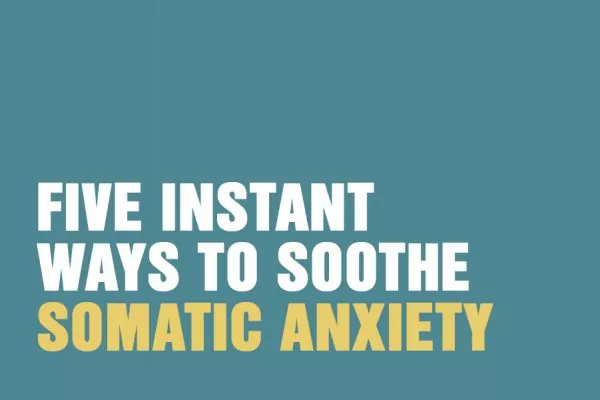We all experience intrusive thoughts from time to time. Whilst we mostly have control over what we think, we never have full control, and this means that sometimes, negative and intrusive thoughts can come into our minds. Whilst intrusive thoughts are just that – thoughts – they can be distressing if they occur on a regular basis, and depending on the nature of the thoughts, they may make you feel like a bad person for thinking those things.
The good news is, intrusive thoughts can largely be managed. In this article, we’re going to look in more detail at intrusive thoughts and how you can cope with them.
What are intrusive thoughts?
Intrusive thoughts are unwanted thoughts that are often repetitive. They appear without warning and sometimes are violent, disturbing, or distressing in nature. Some examples of intrusive thoughts are:
- Thinking about hurting someone else
- Thinking about hurting yourself
- Thinking about committing a crime
- Thinking of doing something violent
- Doubting your ability to do something
- Worrying about doing something embarrassing
- Thinking about a traumatic life event or experience
- Worrying about getting severely ill or coming into contact with germs
Intrusive thoughts generally last a bit longer than other thoughts, which typically last for a fleeting moment. They also tend to recur, and this can make them distressing and make you feel like you can’t control your thoughts. If the thoughts are disturbing in nature, you might begin to feel like you’re a bad person, but it’s important to remember that thoughts alone do not make you a bad person and do not necessarily reflect who you are or your intentions.
With the right level of treatment, managing intrusive thoughts can, for most people, be effectively achieved. The Awareness Centre offers a number of services to support you in managing your intrusive thoughts.
What causes intrusive thoughts?
For the most part, intrusive thoughts have no underlying cause; they just happen. In a simplistic sense, they pop into your head and exit as quickly as they came, and there’s no real reason for it. It’s just the way our minds work, and it’s something the vast majority of us deal with from time to time (around 94% of us to be more precise).
In some cases, there could be an underlying cause, such as anxiety disorders, post-traumatic stress disorder (PTSD) or obsessive-compulsive disorder (OCD). Intrusive thoughts have also been linked to brain injuries, dementia, and Parkinson’s disease.
Intrusive thoughts vs normal thoughts
It’s thought that the average person has around 6,000 thoughts every single day. That’s a lot of thoughts and there’s a lot going on, so knowing how to separate normal thoughts from intrusive ones can seem quite difficult. Generally speaking, if you find that you’re having recurring thoughts that are causing you distress, that last longer than a brief moment, or that lead you to want to try and control how you think and the thoughts you have, you could be experiencing intrusive thoughts.
When to seek help
For most people, intrusive thoughts don’t have a bearing on their everyday life and they leave as quickly as they arrive, but if you find that they keep happening and they’re causing distress, or if you notice other symptoms like a general change in your thought patterns or obsessive thoughts, it’s a good idea to speak to a GP.
You should never feel ashamed of obsessive thoughts, but speaking to a professional to see if there’s an underlying mental health condition like OCD can greatly help.
How to cope with intrusive thoughts
Now you understand a bit more about intrusive thoughts, how can you go about managing them? You might not be able to stop them altogether, but there are ways to make them feel less overwhelming.
Cognitive behavioural therapy (CBT)
One of the most useful ways you can manage intrusive thoughts and thought patterns overall is by engaging in CBT. This is a branch of psychotherapy that helps you to successfully identify negative and/or irrational thoughts and behaviours, understand why they’re happening, and look at how to view them in a different, less negative way.
Say the thought out loud
Often, disturbing thoughts can feel overwhelming because they only exist in our heads. Your brain can overemphasise the thought to the point that it feels real, and this can cause distress. To try and mitigate this, try saying the disturbing thought out loud or writing it down. There’s a chance that it won’t carry quite as much weight when you do so, and you might be able to move on from it once you realise it’s an insignificant thought.
Practice grounding
Grounding is a really useful technique that can help people with a range of negative thought patterns. It works by centering yourself in the present moment and doing things to retain your focus on the here and now. This can include touching things, speaking out loud five things you see, and deep breathing. You might engage in the 5-4-3-2-1 grounding technique, which involves noticing five things you can see, four things you can touch, three things you can hear, two things you can smell, and one thing you can taste. This engages all of your senses in the present moment.
When you focus on the present moment, you’re more distracted from the negative thoughts.
Accept the thoughts
It’s natural to want to try and push an intrusive thought out of your mind, but this doesn’t always work and can often make you feel like you’re responsible for how you’re thinking. Where possible, try to accept the thought and remind yourself that you have no control over them – they’re automatic and not a reflection of you, who you are, your morals, or your intentions.
Also try and continue what you’re doing rather than stopping and fretting about the thoughts. Allow the thoughts to be present whilst you work, cook, clean, or simply relax. This will give less power, so to speak, to the thoughts.
Get help for intrusive thoughts at The Awareness Centre
Sometimes, professional help is needed to help manage unwanted intrusive thoughts. At The Awareness Centre, our team is best placed to help you recognise, understand, and deal with intrusive thoughts. Whether you have an underlying reason such as OCD or PTSD which may be causing such thoughts, or if there’s no reason for them but they are causing you distress, we can help. Please contact us to find out more and to book an appointment with a mental health professional at one of our London clinics today.







